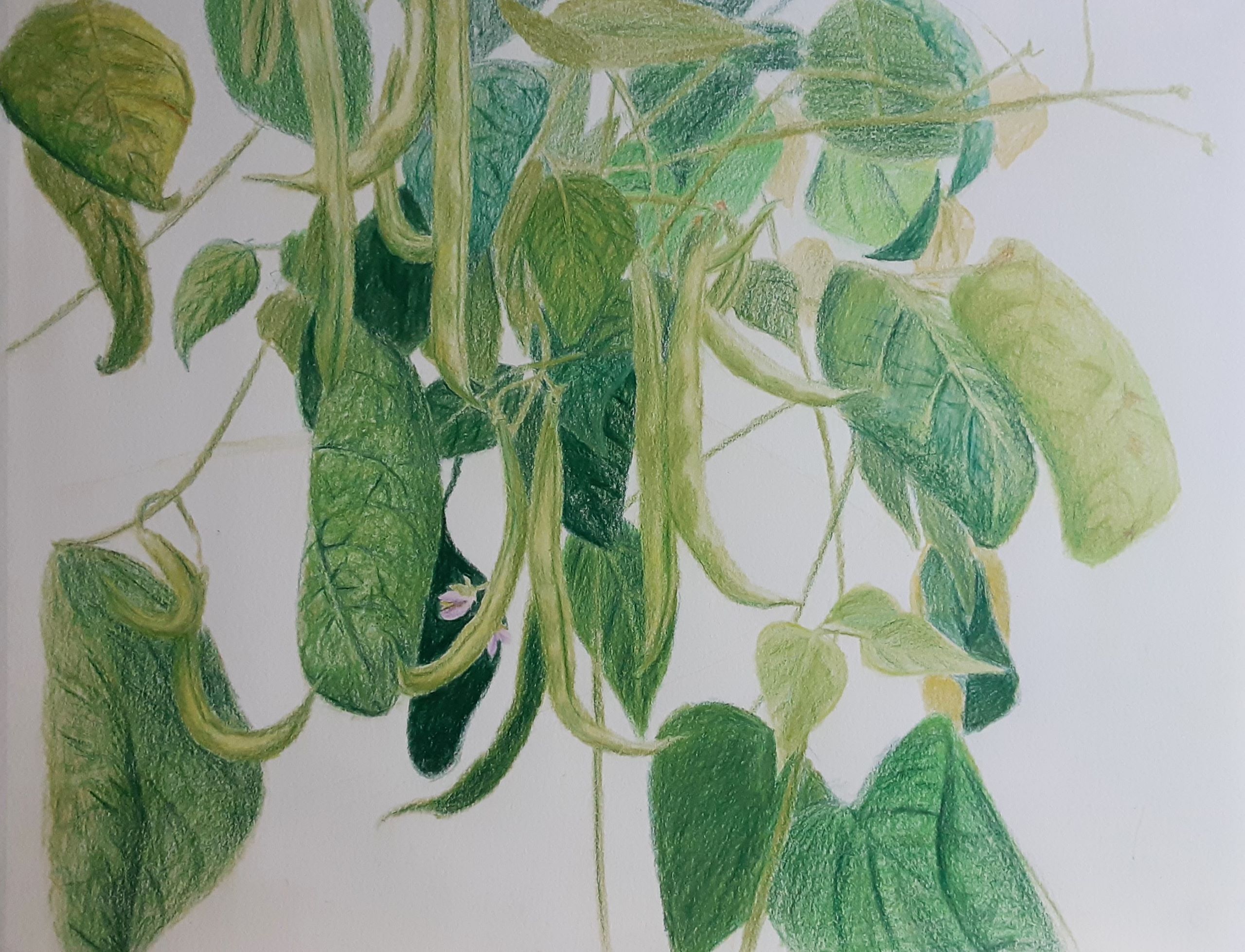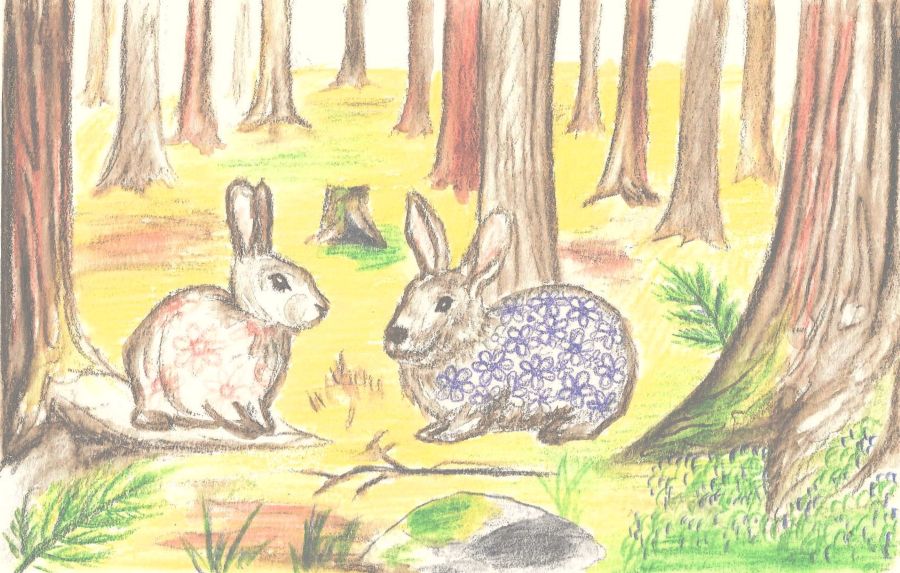Do you ever want to just leave everything and go off to live in a forest? Well, you’re not alone. This same desire has been expressed often over the centuries, from Abraham Cowley writing in the 17th century, to W.B Yeats writing in the 19th. In “The Wish”, a harried Cowley echoes our modern sentiment of the world being too busy for comfort. In a somewhat calmer tone, Yeats also seeks refuge in an idyllic natural setting in his poem, “The Lake Isle of Innisfree.”
Writers love to talk about bees. It is interesting how these two poems use bee images in opposite ways. For Yeats, bees are a positive part of his natural scene, and are a source of food for his simple life. Cowley on the other hand uses bees as a metaphor for the busy city he seeks to escape. The honey is the false sweetness of shallow social achievement, ultimately not worth it to him. Instead of substantial food, i.e. real fulfillment in life, people in the city clamor and jockey for what is immediately sweet, but which soon is cloying to the palate.
What is each poet seeking in his ideal retreat? A city is an interesting mix of blandness and overwhelm; stretches of grey pavement contrast with horns, fast-moving vehicles, and the anxiety clouds of others. The remedy is not total silence, or sensory deprivation. Yeats is excited to live in “the bee-loud glade”, and it seems every looked-for moment is bursting with sounds and activity. Even midnight is “all a glimmer.” In the natural setting, this activity is nourishing instead of depleting. Cowley is less descriptive about the specific sensory experience of being in nature. He emphasizes much more what he is being freed from, rather than what he is seeking. He entwines the positive elements of nature with what they replace; the murmuring wind replaces murmuring gossips, and the nymph spirits of the forest replace the flatterers of court.
While their ideal settings appear similar, each poet is motivated by different forces to make a change. Cowley is pushed away from society, while Yeats is pulled towards nature. From his first line, Yeats has a specific place and image in mind: “I will arise and go now, and go to Innisfree.” The rest of the poem unfurls smoothly in a vivid description, dreamlike yet precise. We understand only at the end how this vision has been taking shape in his mind over some period of time, and that “always night and day” the presence of Innisfree occupies his thoughts and his senses. His outsides and insides do not match: outwardly he sees pavement and greyness, but his mind’s eye overlays onto this scene the rhythmic sounds of water on the shore. His yearning to go is also an attempt to match his inner and outer senses.
Why is it important for Yeats to go to Innisfree, when he seems to already have that place inside of himself? Can’t he use it to block out the city around him? What he needs specifically from nature that he can’t manage himself is encapsulated in the mysterious lines, “And I shall have some peace there, for peace comes dropping slow, / Dropping from the veils of the morning to where the cricket sings”. The phrase “dropping slow” is so unexpected. It seems like peace is tied to the motion of the day’s change, and cannot proceed faster or slower than that quiet motion. Unlike happiness, which can come and go in a flash, peace stretches out like a yawn in the morning light, light which increases so incrementally it is almost imperceptible, yet it colors all of existence. The transitions between and during the cycles of the day are the measure of his peace, and echo the comforting rhythm of waves on the shore.
Yeats is about to stand up from his chair and start walking to Innisfree, probably not even taking his wallet with him. Cowley is a little more generous with his provisions when he sets out, and brings a few more comforts into his dreamscape. Instead of building his house out of sticks, he would like to conjure up a small house and large garden, a few friends, and many books. He wants to relocate the best parts of his life in the city to a natural setting, maintaining what is true and leaving behind the falsity of flattery and gossip. He does value nature for itself, but also wants nature to erase his unpeaceful thoughts. He frames the virtues of nature repeatedly as a contrast to the downsides of the city.
Cowley is not seeking complete solitude, or complete self-sufficiency. What companionship does he wish for? Besides his few friends and many books, he speaks of “a mistress moderately fair.” It is hard to picture her as a real person, given that she is to be “good as guardian angels are, / Only beloved and loving me.” He also thinks that “Here nought but winds can hurtful murmurs scatter, / And nought but Echo flatter”, which does not sound like what would happen if he were living with someone else. Of course perhaps he is making up an idealized lover–this is a poem, after all. She loves only him, never murmurs a hurtful word, and yet does not flatter him. What if, though, the companion is a sort of embodiment of Nature? This would give a more literal meaning to the lines “She who is all the world, and can exclude / In deserts solitude.” Nature could provide this sense of being a guardian angel, ever present, and a vanquisher of solitude.
Each poet turns inward at the end of the poem, connecting back to their first lines. While Yeats refers to Innisfree as a far off place, he emphasizes its immediacy to him with the final three stressed syllables, “I hear it in the deep heart’s core.” The depth of his emotion and the urgency of his feeling brings the daydream into the physical world, in the beating of his heart. Cowley, after spending the whole poem distancing himself from society, ends with his fear that even his secluded earthly paradise will be invaded by the swarm of society, since everyone will be chasing the happiness that he attains. He would do well then to not write any letters to his former neighbors, and keep his newfound happiness a secret in order to prevent the comical migration he predicts.


